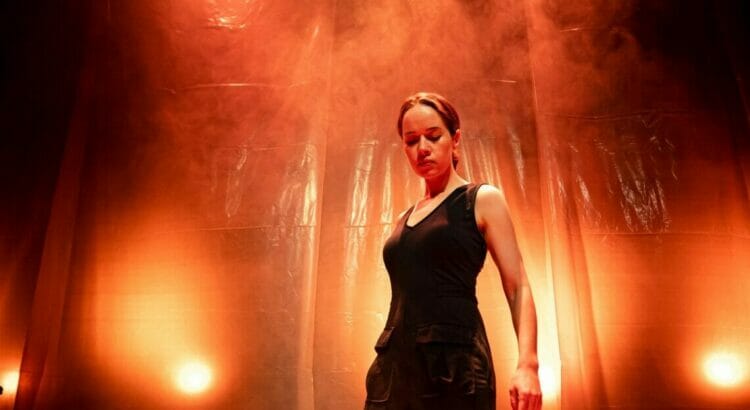READING Repertory Theatre has brought a new adaptation of Hedda Gabler to the stage for its latest production, co-produced with A Girl Called Stephen.
The adaptation by Harriet Madeley sets the titular character on the same journey as the Henrik Ibsen classic, but with new twists on the characters themselves rather than the story.
Anna Popplewell’s Hedda is still recently wed to husband George, portrayed by Mark Desebrock, who bores her with his hum-drum domestic ideals and historical fascination.
The lack of inspiration from the couple’s life is readily present, with George’s overly chipper outlook dropping in and out in place of a deeper anger and a lack of suitability, well-performed by Desebrock.
The smaller implications of his darker aspects may be subtle but are there to be seen in the intricacies of the performance.
Anna Popplewell’s portrayal of Hedda is to be commended for the instant relatability and misanthropy grounding the play and providing the all-important audience surrogate during the opening scenes.
Her dissatisfaction is clear from the outset, writ large in the first scene where she is forced to interact with an aunt of George’s, with a consummate portrayal of a modern, independent woman at the behest of circumstances.
The scene is an instant introduction to the relentless monotony of George’s partnership and the sense of loathing which is barely concealed, which both Desebrock and Popplewell played with engagement and energy.
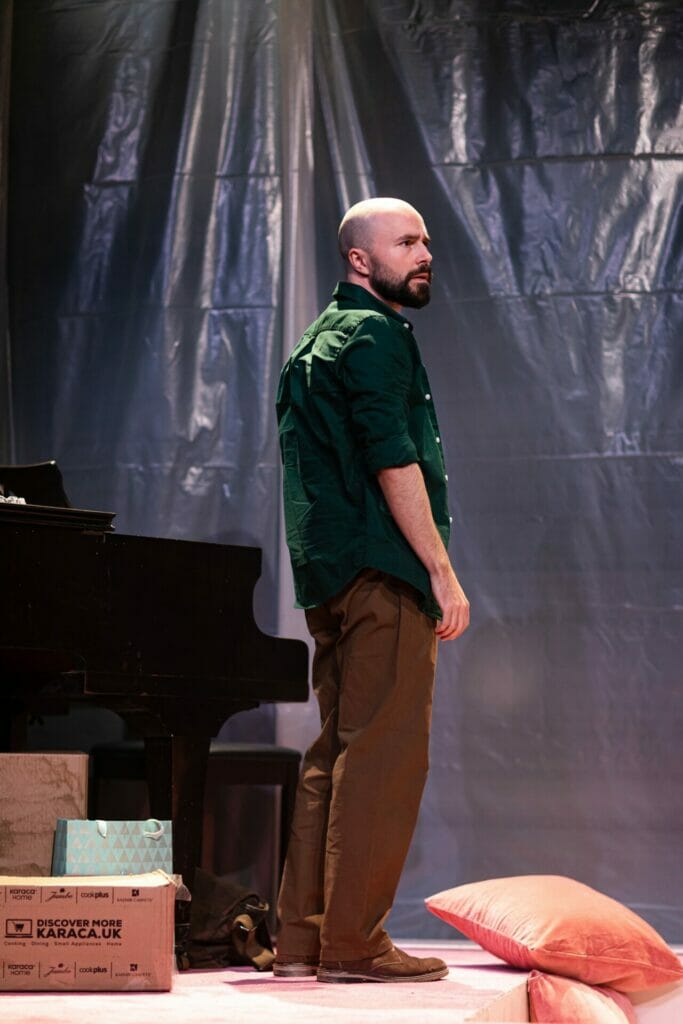
George’s publisher, Brack, is portrayed by Ryan Gerald with an energy and alacrity which doesn’t always belie the deeper, more manipulative aspects to the character.
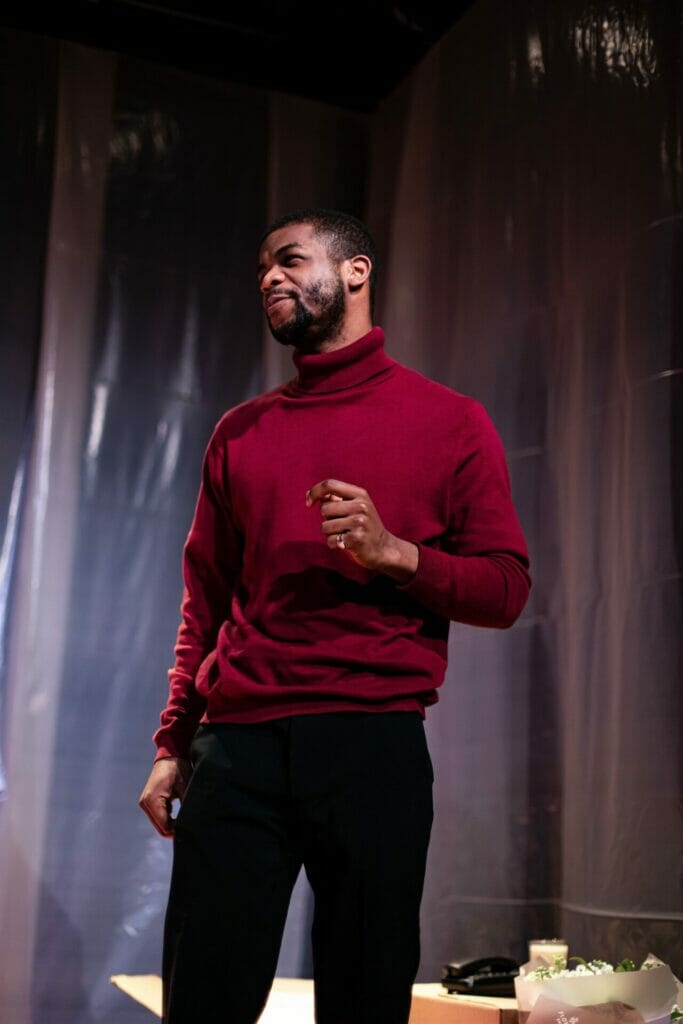
The introduction of Thea brings a welcome distraction to the pair’s plight, especially with her accomplished portrayal by Natalie Perera.
Perera walks a fine balance of showing that Thea can be irritating to other characters without making the character themselves difficult to watch, especially as some of her ditzier aspects fall away as the play develops.
When Thea arrives seeking Isla, a rival of George’s and ex-lover of Hedda’s, the couple is thrown into a series of events which sees them completely rethink their relationships with the rest of the characters.
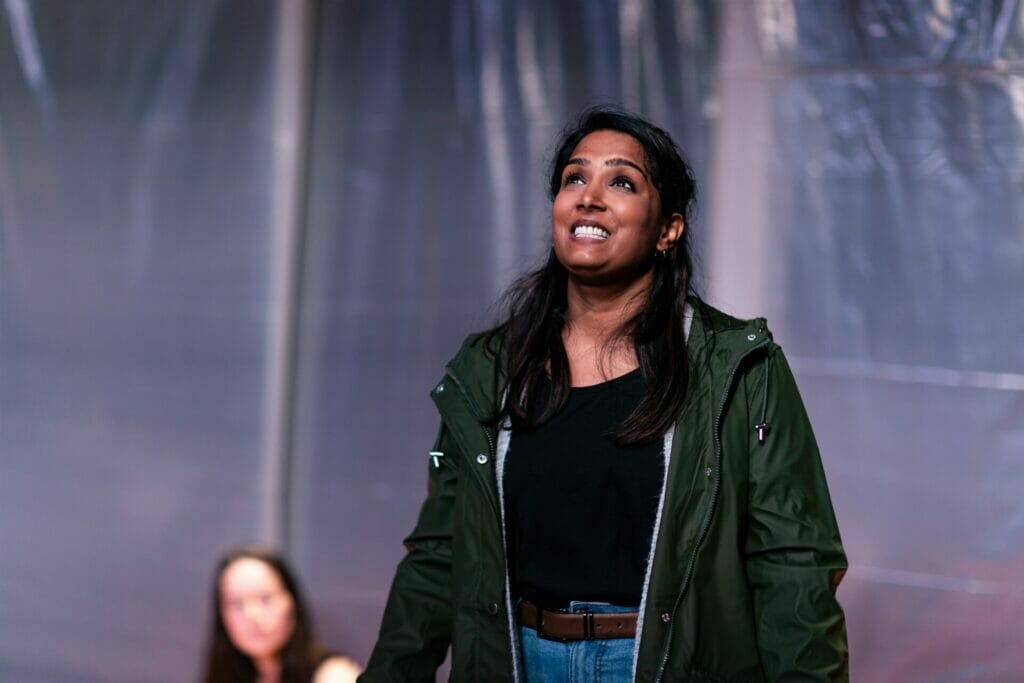
Rounding out the cast is Jessica Temple, whose portrayal of Isla glows with intensity almost immediately.
The character’s introduction feels like a firework has gone off in the room, and every minute of her time on stage is exciting and engaging, deftly combining a burning lust for life and the constant wrestling with self-destruction.
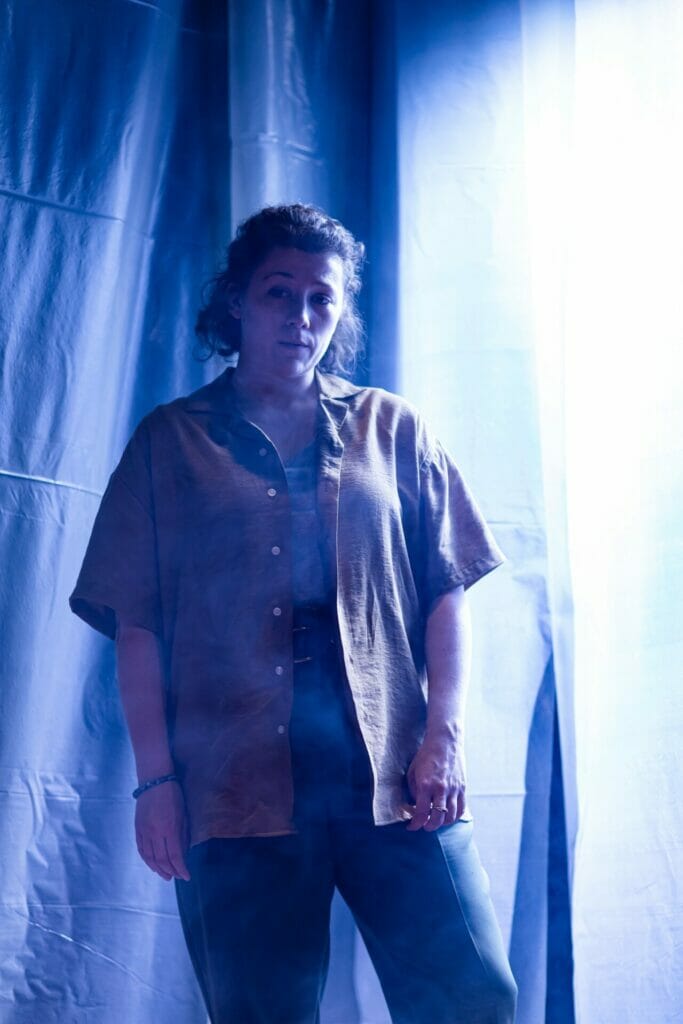
Overall, the diversification of the characters from Ibsen’s original work lends an extra dimension to the production, bringing new depth to the relationship between Isla and Hedda especially.
It lends itself also to the feeling of complicated entanglement and unspoken feelings between the play’s principal cast, which reflects the queer experience beautifully.
Brack’s lasciviousness is also complemented by his care-free attitude to gender, again reinforcing the character’s seeming fondness for chaos and unpredictability.
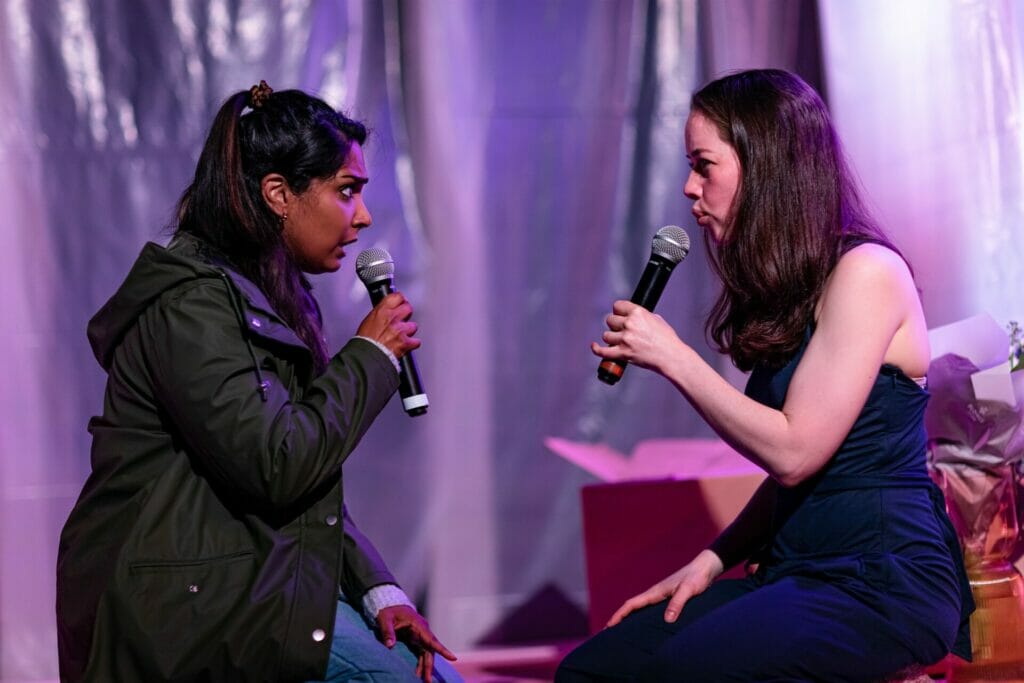
The set design is effective in engendering a sense of transience to the circumstances of the play.
Not only does it practically portray the process of having recently moved in, but the dust sheets and cardboard boxes also give the feeling of a life of domestic detachment.
Lighting and sound are used in choice ways which add to the production’s more dynamic and thrilling sections without distracting, and always complement the tone of events in a stylised and captivating way.
Overall, Harriet Madeley’s adaptation, along with Annie Kershaw’s selective directorship, has brought fresh life into a play which already bubbles with modernity.
The production has smoothed over some of the sharper, less desirable features of Ibsen’s original work while holding on to the aspects which make it more relevant than ever.
It has also transposed the play’s themes on the freedom– or lack thereof– women have when part of a patriarchal society to include the struggles with acceptance for queer people, and to wonderful effect.
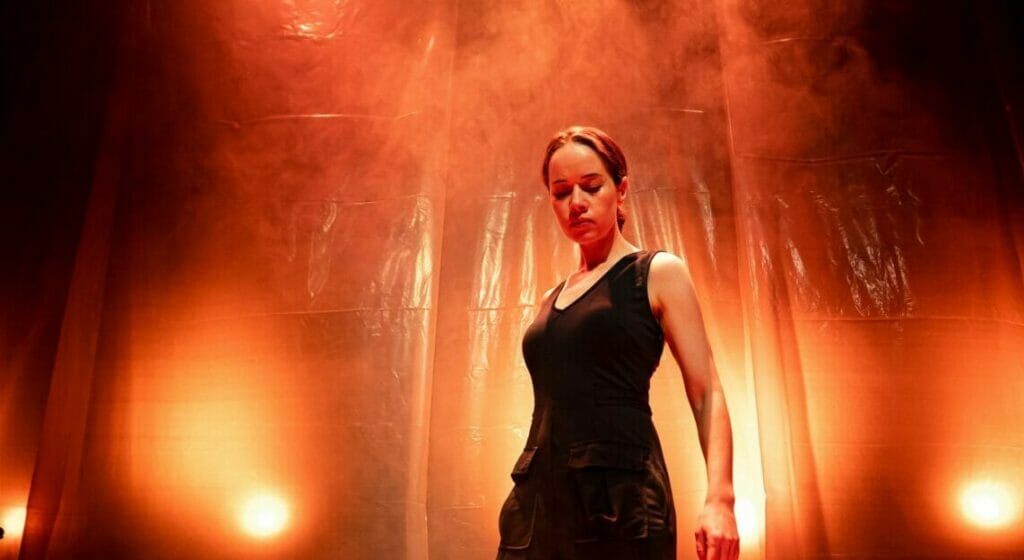
Hedda Gabler is showing at Reading Repertory Theatre, Kings Road, until Saturday, March 11.
As part of Reading Rep’s tenth anniversary season, 10% of all tickets to Hedda Gabler will be free for those who can’t afford them.
All general tickets are priced under £20 and thirty tickets for each performance during the show’s first week are priced at £5 for under-thirties.
For more information or to book tickets, visit:



















